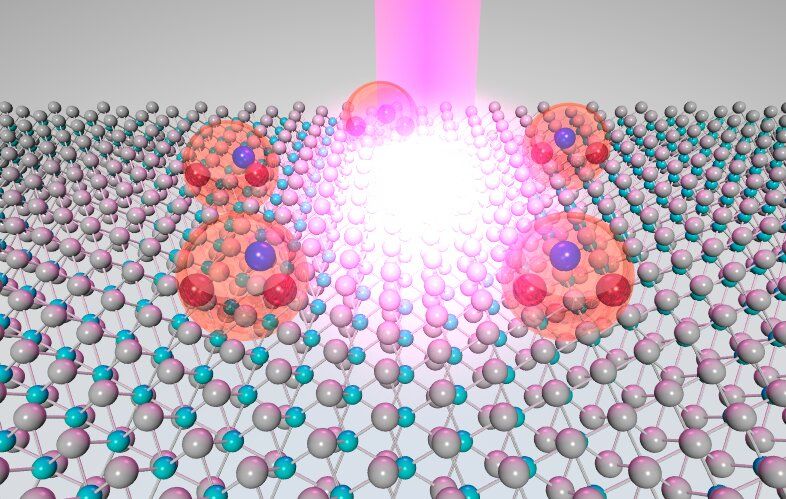Move aside, electrons; it’s time to make way for the trion.
A research team led by physicists at the University of California, Riverside, has observed, characterized, and controlled dark trions in a semiconductor—ultraclean single-layer tungsten diselenide (WSe2)—a feat that could increase the capacity and alter the form of information transmission.
In a semiconductor, such as WSe2, a trion is a quantum bound state of three charged particles. A negative trion contains two electrons and one hole; a positive trion contains two holes and one electron. A hole is the vacancy of an electron in a semiconductor, which behaves like a positively charged particle. Because a trion contains three interacting particles, it can carry much more information than a single electron.
